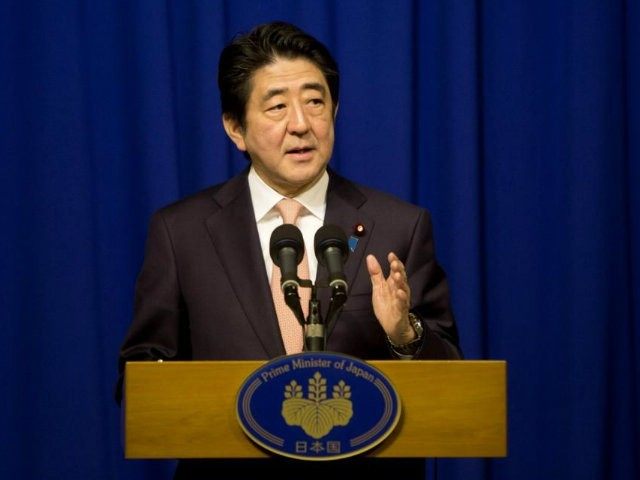AFP reports that Japanese Prime Minister Shinzo Abe is expected to address a joint session of the U.S. Congress in April, making him the first prime minister of Japan to deliver such an address. The event is to come at the end of a visit in April focused on “deepening trade and military ties,” although there is speculation he will also cover the “evils and horrors” of Japan’s history, as he did during a speech to the Australian Parliament last July.
Those historical events are the cause of some friction between Japan and South Korea, which has long desired a more frank discussion of Japan’s use of women from other Asian nations as “comfort women,” or sex slaves, during World War II.
Reuters reports that both a Korean-American group and a group representing U.S. veterans who survived Japanese captivity in World War II have asked Congress to make Abe’s invitation conditional on his willingness to frankly acknowledge Imperial Japan’s war crimes.
“We want Congress to only extend the invitation to Prime Minister Abe to speak at the podium of Roosevelt and Churchill if they are assured that he will acknowledge that Japan’s defeat released the country from the venom of fascism and the inhuman goals of a criminal regime,” wrote president Jan Thompson of the American Defenders of Bataan and Corregidor Memorial Society. The society also called for the extension and enhancement of a program that helps former POWs visit the locations where they were held and acknowledgement from “the many companies that brutally used POWs as slave labor and who now profit in the American market.”
Abe has been criticized for downplaying, or outright rejecting, postwar judgments of criminal activity, although his government insists he stands by apologetic statements from his predecessors.
If an effective alliance against China is to grow stronger around the Pacific Rim, it might be wise to heal those old wounds once and for all. There was a great deal of anger, sorrow, and debate about Japan’s participation in the struggle against ISIS after two Japanese citizens captured in Syria were executed by the Islamic State.
An important contemporary matter for Abe to address is the Trans-Pacific Partnership trade deal, a massive treaty bridging Australia and Mexico, as well as the United States and Asian nations such as Japan. AFP observes that President Obama has encountered some difficulty getting this deal closed without amendments from Congress, but the resistance is coming “chiefly from within his own Democratic party, and from trade unions who worry about labor standards in the signatory countries and that jobs may be shipped overseas.”
Military cooperation between Japan and the U.S. will also be discussed during Abe’s visit, in light of recent changes to Japan’s constitution that would allow it to go to war for defensive purposes. This could have future ramifications because of the perpetual brinkmanship over certain disputed islands, and China’s increasingly aggressive attitude towards its neighbors.

COMMENTS
Please let us know if you're having issues with commenting.